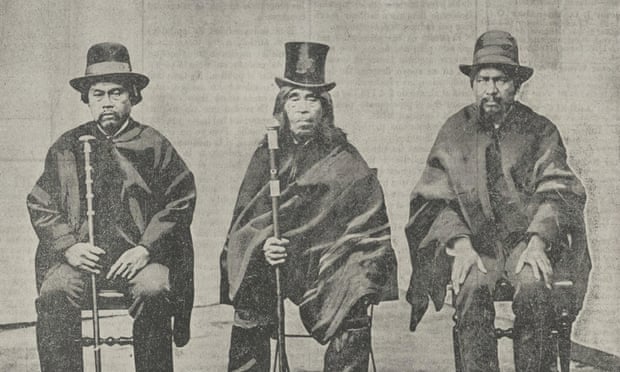Week 8: Rights in Reform: Liberalism, Popular Liberalism and Informal Empire

Week 8: Rights in Reform: Liberalism, Popular Liberalism and Informal Empire
Seminar Questions:
What were the nineteenth-century state-builders views on citizenship? Was state formation simply a top-down process? What was the impact of “everyday forms of state formation” on the development of ideas of citizenship and human rights? What role did the rising imperial interests have on state sovereignty and rights? How did Latin American citizens negotiate their rights in the nineteenth century?
Core Readings:
Joanna Crow, "Troubled Negotiations: The Mapuche and the Chilean State (1818-1830)", Bulletin of Latin American Research, vol 36. 2017, pp. 285 298.
AND
Erika Denise Edwards. “The Making of a White Nation: The Disappearance of the Black Population in Argentina.” History Compass.16:7 2018.
OR
Tristan Platt. "Liberalism and ethnocide in the southern Andes", History Workshop Journal No. 17, (Spring 1984), 3-18.
Practical Assignment Preparation:
Look at this blog by Erika Edwards, Associate Professor of Colonial Latin American History at the University of North Carolina-Charlotte, in which she historicizes her experience in Argentina. What do you think about it as a piece of public history?
Erika Edwards, Pardo is the New Black: The Urban Origins of Argentina’s Myth of Black Disappearance Global Urban History
Further Reading:
George Reid Andrews.The Afro-Argentines of Buenos Aires, 1800-1900. University of Wisconsin Press: Madison, Wisconsin, 1980.
Carmagnani, Marcello. The Other West: Latin America from Invasion to Globalization, University of California Press, 2011. (Chapter 4)
José Carlos Chiaramonte, 'The Ancient Constitution After Independence (1808-1852).' Hispanic American Historical Review 1 August 2010; 90 (3): 455–488.
Erika Denise Edwards. “The Making of a White Nation: The Disappearance of the Black Population in Argentina.” History Compass.16:7 2018.
Carlos A. Forment. Democracy in Latin America, 1760-1900. Volume 1, Civic selfhood and public life in Mexico and Peru University of Chicago Press, 2003.
Peter Guardino, “Barbarism or Republican Law? Guerrero's Peasants and National Politics, 1820-1846”, Hispanic American Historical Review
Charles Hale, “The reconstruction of nineteenth-century politics in Latin America: a case for the study of ideas.”, Latin American Research Review, 5:2, 1973.
Alan Knight, "Rethinking Informal Empire in Latin America (Especially Argentina)", Bulletin of Latin American Research. 27: 1, 2008, 23-48.
Brooke Larson. Trials of Nation Making : Liberalism, Race, and Ethnicity in the Andes, 1810 -1910. Cambridge University Press.
Florencia E. Mallon. Peasant and nation: the making of postcolonial Mexico and Peru. University of California Press 1995.
Vincent C. Peloso and Barbara Tenenbaum (eds.) Liberals, Politics and Power: State Formation in Nineteenth-Century Latin America. University of Georgia Press, 1996.
Tristan Platt. "Liberalism and ethnocide in the southern Andes", History Workshop Journal No. 17, (Spring 1984), 3-18.
Guy P. C. Thomson, “Popular Aspects of Liberalism in Mexico, 1848-1888, Bulletin of Latin American Research, Vol. 10, No. 3 (1991), pp. 265-292.
Sabato, Hilda. Republics of the New World. The Revolutionary Political Experiment in Nineteenth-Century Latin America. Princeton: Princeton University Press, 2018.
James E. Sanders, "Citizens of a Free People": Popular Liberalism and Race in Nineteenth-Century Southwestern Colombia, Hispanic American Historical Review, Vol. 84, No. 2 (May, 2004), pp. 277-313.
James E. Sanders. The Vanguard of the Atlantic World: Creating Modernity, Nation and Democracy in Nineteenth-Century Latin America. Journal of World History. 20:1, 2019.
James E. Sanders, “Atlantic Republicanism in Nineteenth-Century Colombia.” Journal of World History. 20:1, 2019.
Fiona Wilson. “Indian Citizenship and the Discourse of Hygiene/ Disease in Nineteenth-Century" Bulletin of Latin American Research, 23:2, 2004. 165-180.
